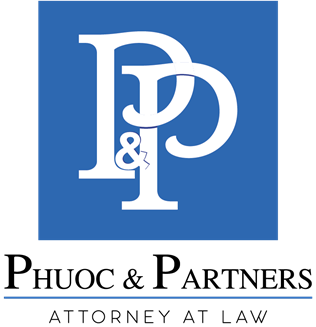Frequently Asked Questions About Debt Recovery
In the context of the modern economy, the issue of debt recovery has become a hot topic that both individuals and enterprises must pay attention to. Failure to recover debts not only affects personal finances but can also cause great difficulties for business activities of enterprises. This article will answer Frequently Asked Questions About Debt Recovery, clearly distinguishing between personal debt recovery and public debt, as well as provide the necessary information to effectively handle this problem.
What is debt recovery?
Personal debt recovery
Personal debt recovery is the process by which an individual or organisation seeks to recover money owed to them by another party. This may involve reminders of the debt, negotiating repayment, or taking legal action to recover the funds. Personal debt recovery typically occurs in transactions between friends, family members, or informal personal loans.
Corporate debt recovery
Corporate debt collection is the process by which a business seeks to recover money owed by customers, partners, or third parties. In a business environment, accounts receivable typically arise from commercial transactions, and businesses must manage them effectively to ensure liquidity and maintain operations.
Methods of debt recovery
Call reminders
One of the simplest and most effective methods is to make a phone call to remind the debtor. This can help apply pressure and encourage them to make payment. However, it is important to ensure that the reminder is conducted politely and without excessive pressure, in order to avoid creating any conflict.
Send a debt reminder letter
Sending a debt reminder letter is also a common method. The letter should be drafted politely yet clearly, outlining the amount owed, the payment deadline, and the consequences of non-payment. Sending the letter creates an official document, which helps to reinforce your request.
Negotiation and settling
In some cases, negotiating and discussing with the debtor can help reach a better agreement for both parties. It may be possible to arrange a payment schedule or reduce the amount owed. This not only facilitates debt recovery but also helps maintain a good relationship between the two parties.
The notes when collecting personal debts
Check debtor information
Before beginning the debt recovery process, ensure that you have thoroughly checked the debtor’s information, including their address, phone number, and financial status. This will help you gain a better understanding of their ability to make payment.
No excessive pressure
While debt recovery is necessary, it is also important to respect the debtor’s privacy. Avoid exerting excessive pressure, as this may lead to unwanted consequences, such as the debtor refusing to pay or engaging in retaliatory behaviour.
Keep records carefully
Keep all documents related to the debt recovery process, including payment receipts, reminder letters, and records of calls. This will be useful in case you need to prove your claim in legal disputes.
The notes when collecting corporate debts
Compliance with legal regulations
When recovering debts, businesses must comply with the relevant legal regulations. Failure to do so may lead to legal disputes and damage the company’s reputation.
Customer solvency assessment
Before requesting payment, businesses should assess the customer’s financial ability. This will help tailor the debt recovery strategy accordingly, thereby avoiding unnecessary pressure on the customer.
Use of mediation measures
In some cases, using mediation measures can help resolve the debt more effectively, saving both time and costs. The business may invite relevant parties to participate in a meeting to discuss and find a reasonable solution.
Frequently Asked Questions About Debt Recovery about initiating a lawsuit?
When should a lawsuit be filed to recover debts?
Filing a lawsuit is the final step in the debt recovery process. You should consider litigation after exhausting all other debt recovery methods without success. If the amount owed is substantial and there is sufficient evidence to support the debt, a lawsuit may be a reasonable solution.
In many cases, before resorting to legal action, you may want to consider mediation to resolve the issue more quickly and efficiently.
What is the process of initiating a lawsuit?
The litigation process involves steps such as drafting the complaint, filing it with the court, attending mediation sessions, and participating in the trial. Having support from a lawyer can help you navigate this process more smoothly. A lawyer will assist in drafting the complaint, gathering evidence, and representing you in court, increasing the likelihood of a successful outcome.
How much does it cost to initiate a lawsuit?
The costs of litigation include court fees, lawyer’s fees, and other expenses related to gathering evidence. You should calculate and assess these costs before deciding to file a lawsuit, as high expenses combined with a low likelihood of debt recovery may put you at a disadvantage.
How long is the time limit for initiating a lawsuit to collect debts according to the law?
According to Article 429 of the 2015 Civil Code, the statute of limitations for civil debt recovery is three years from the date the legal rights of the claimant are violated. This means that within three years from the debtor’s failure to fulfill their payment obligations, the creditor may initiate a lawsuit to recover the debt.
However, this period may vary depending on the nature of the debt and the type of transaction. In commercial transactions between businesses, the statute of limitations for filing a lawsuit is two years.
If the party with legal rights does not file a lawsuit within this period, their right to sue may be lost, making debt recovery more difficult. Therefore, businesses and individuals should pay close attention to the timeframe and related legal procedures to ensure their rights are not violated.
The above is an overview of the Frequently Asked Questions on Debt Recovery. If you have difficulties in finding a Law Firm to advise and support in the relevant legal field, please contact us. Phuoc & Partners is a professional consulting firm established in Vietnam and currently has nearly 100 members working in three offices in Ho Chi Minh City, Hanoi and Danang. Phuoc & Partners is also rated as one of the leading consulting firms in Vietnam with highly specialised teams in top legal fields such as Labour and Employment, Taxation, Merger and Acquisition, Litigation. We are confident in providing customers with optimal and effective service.








